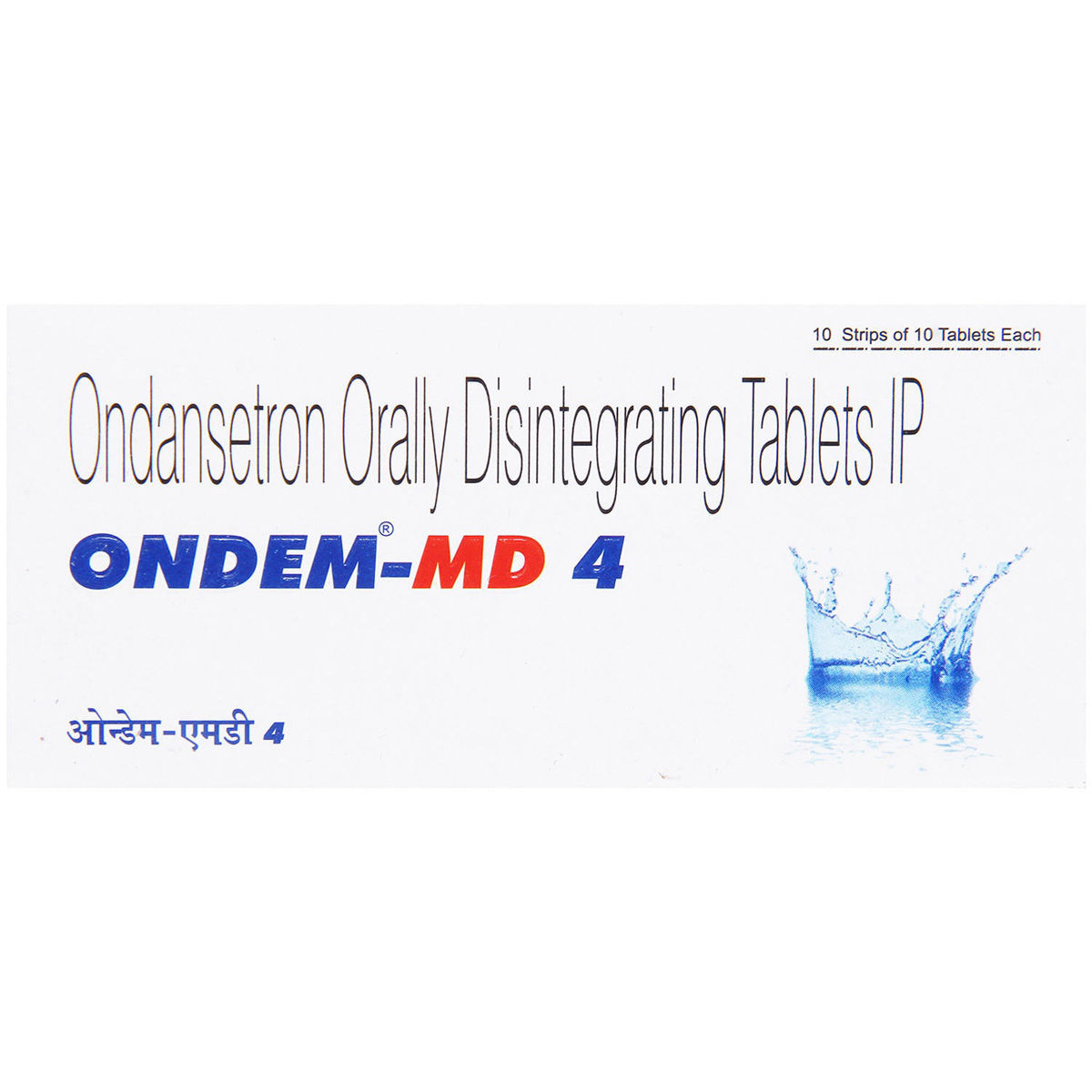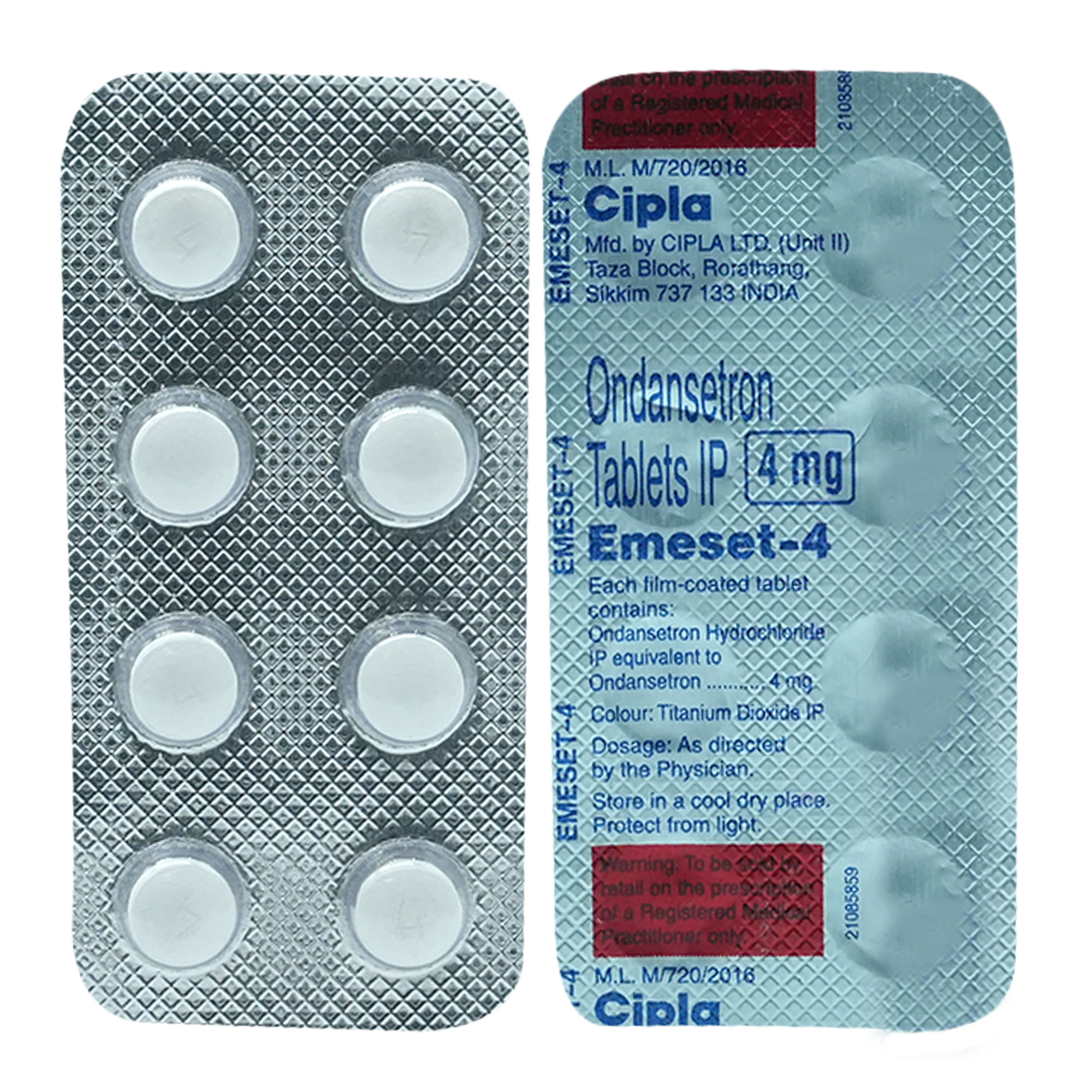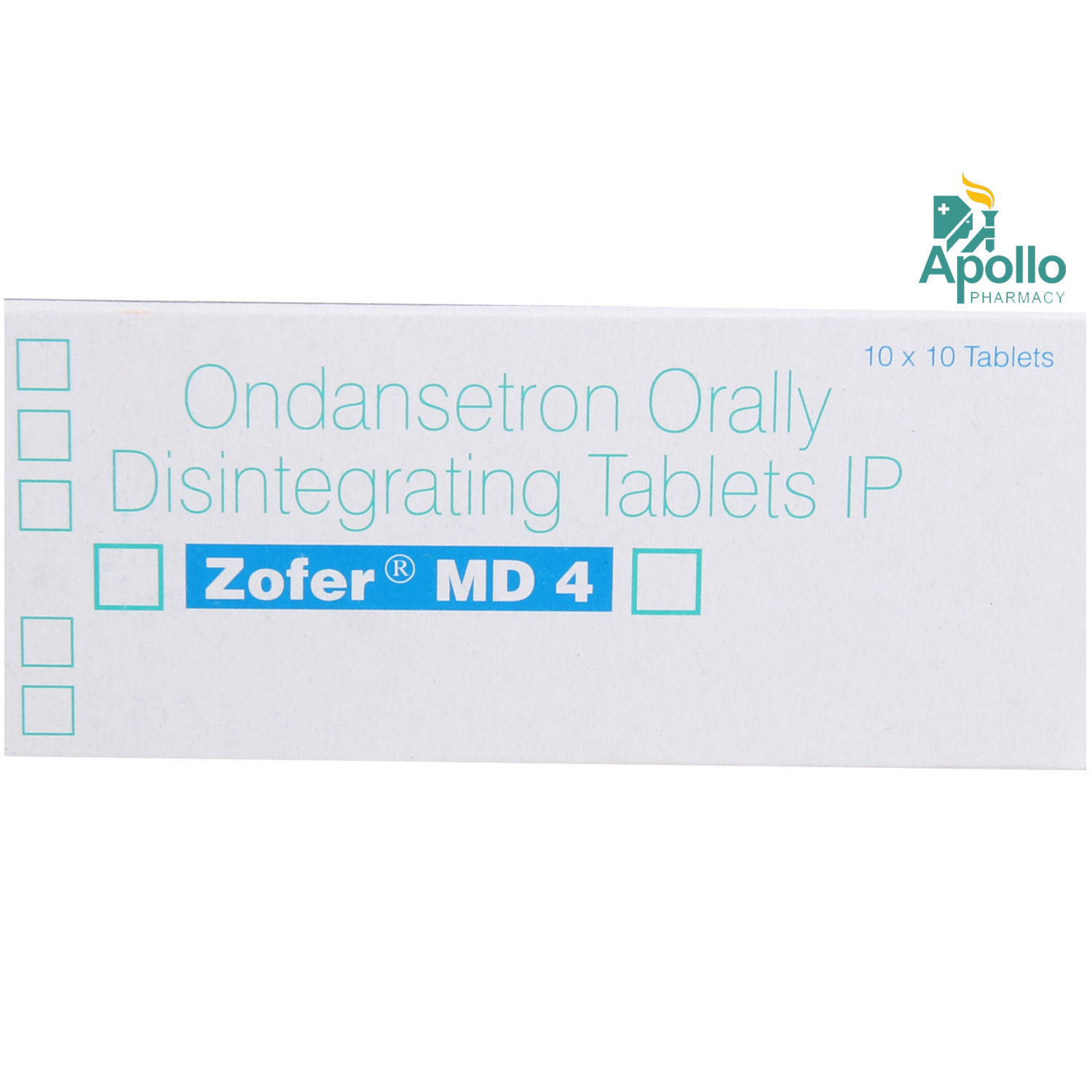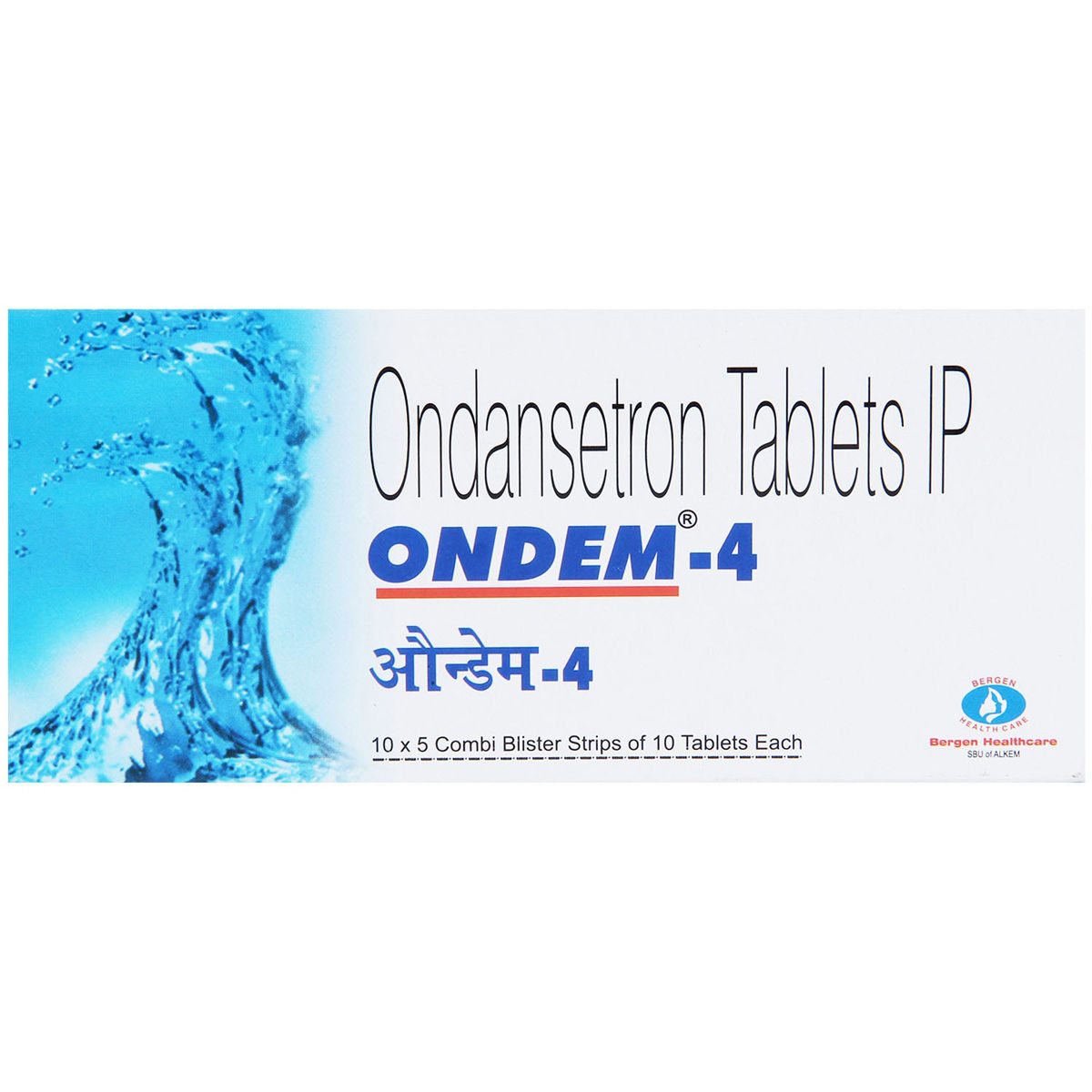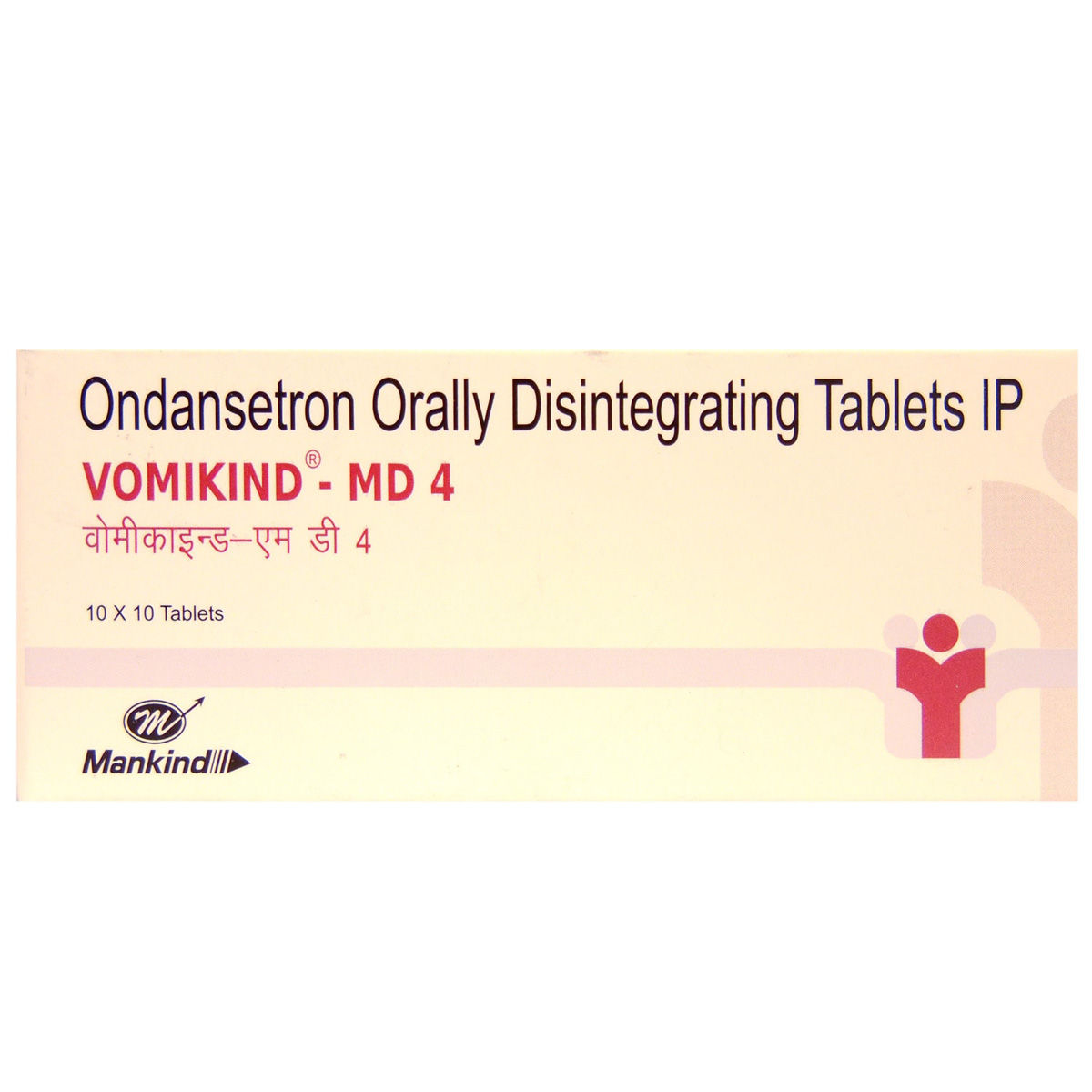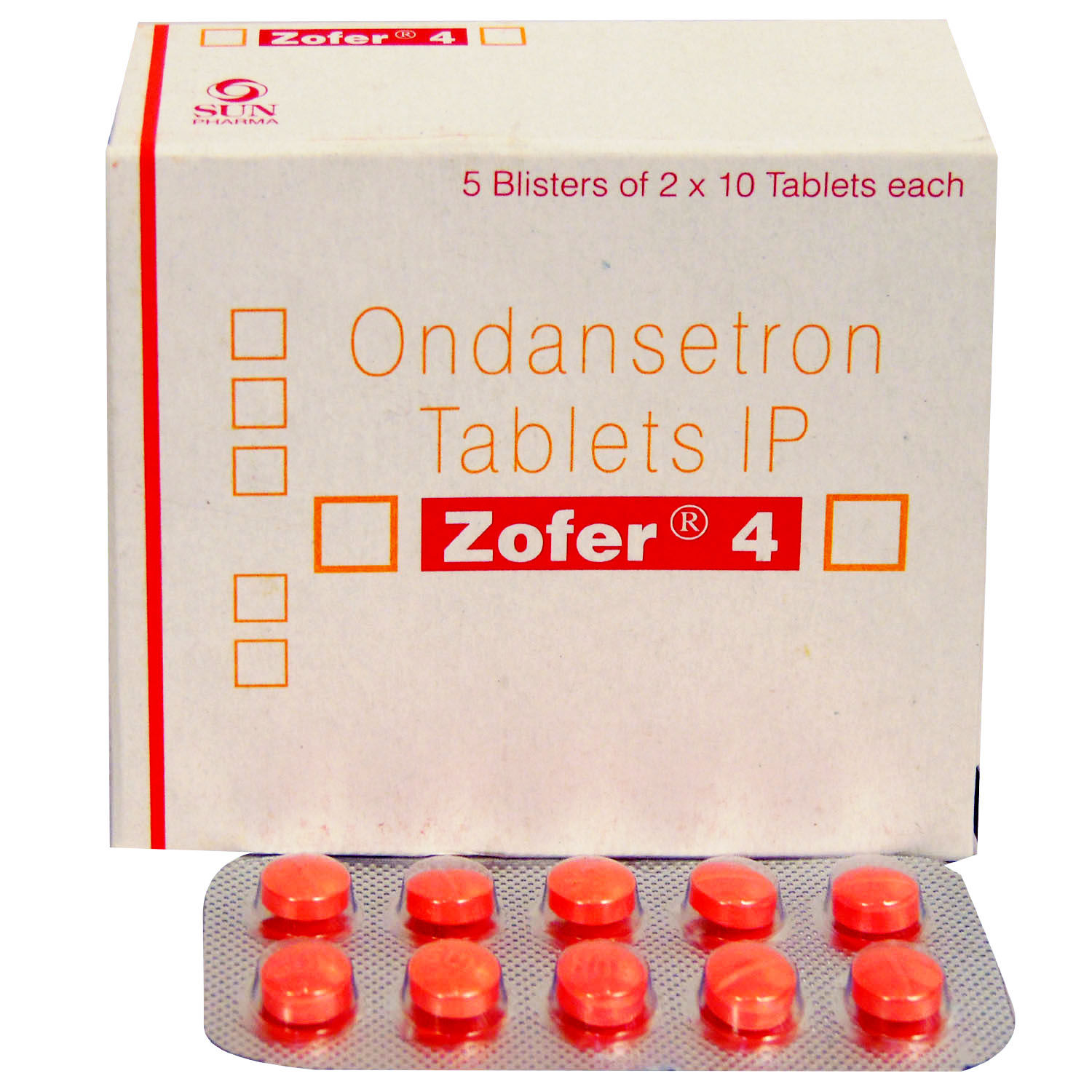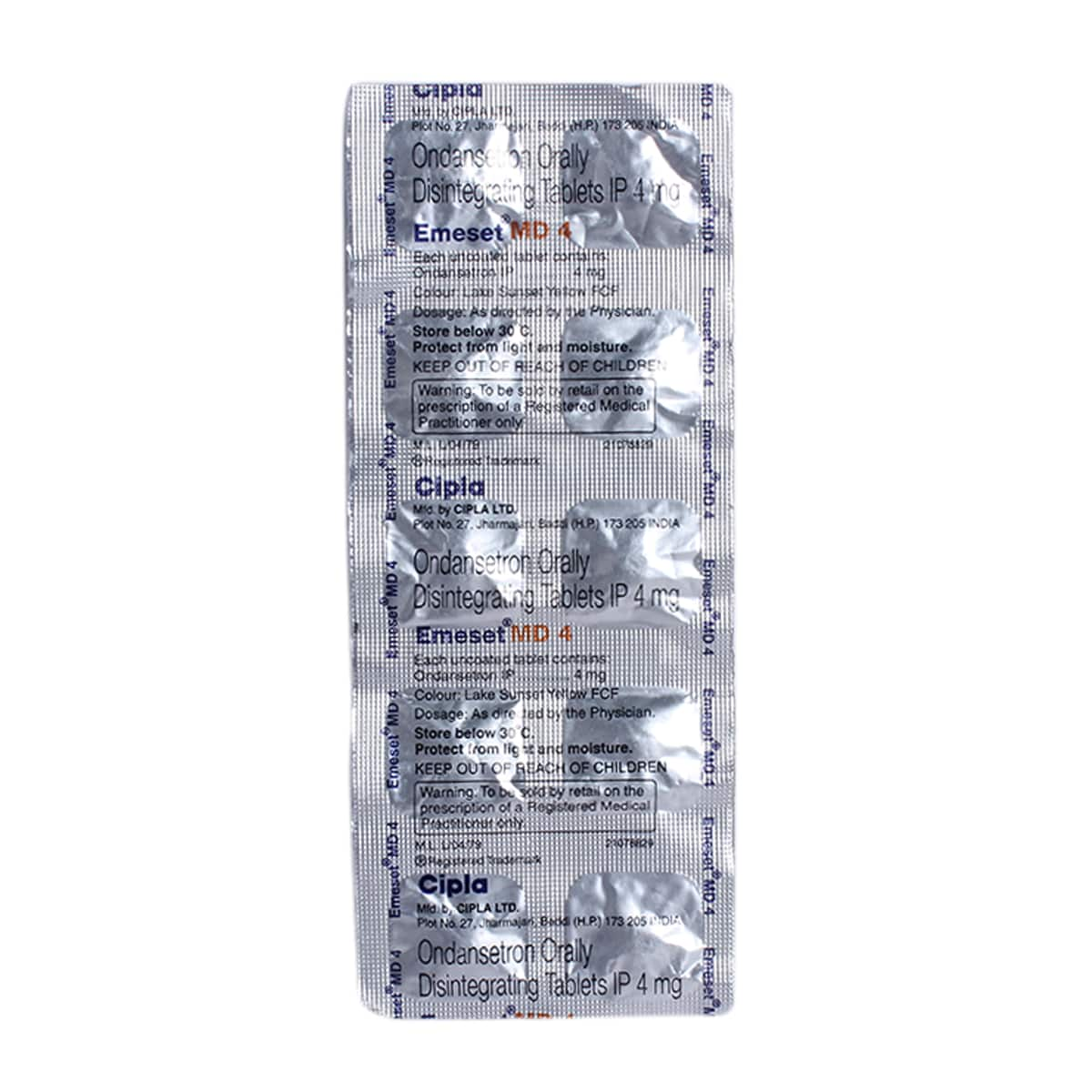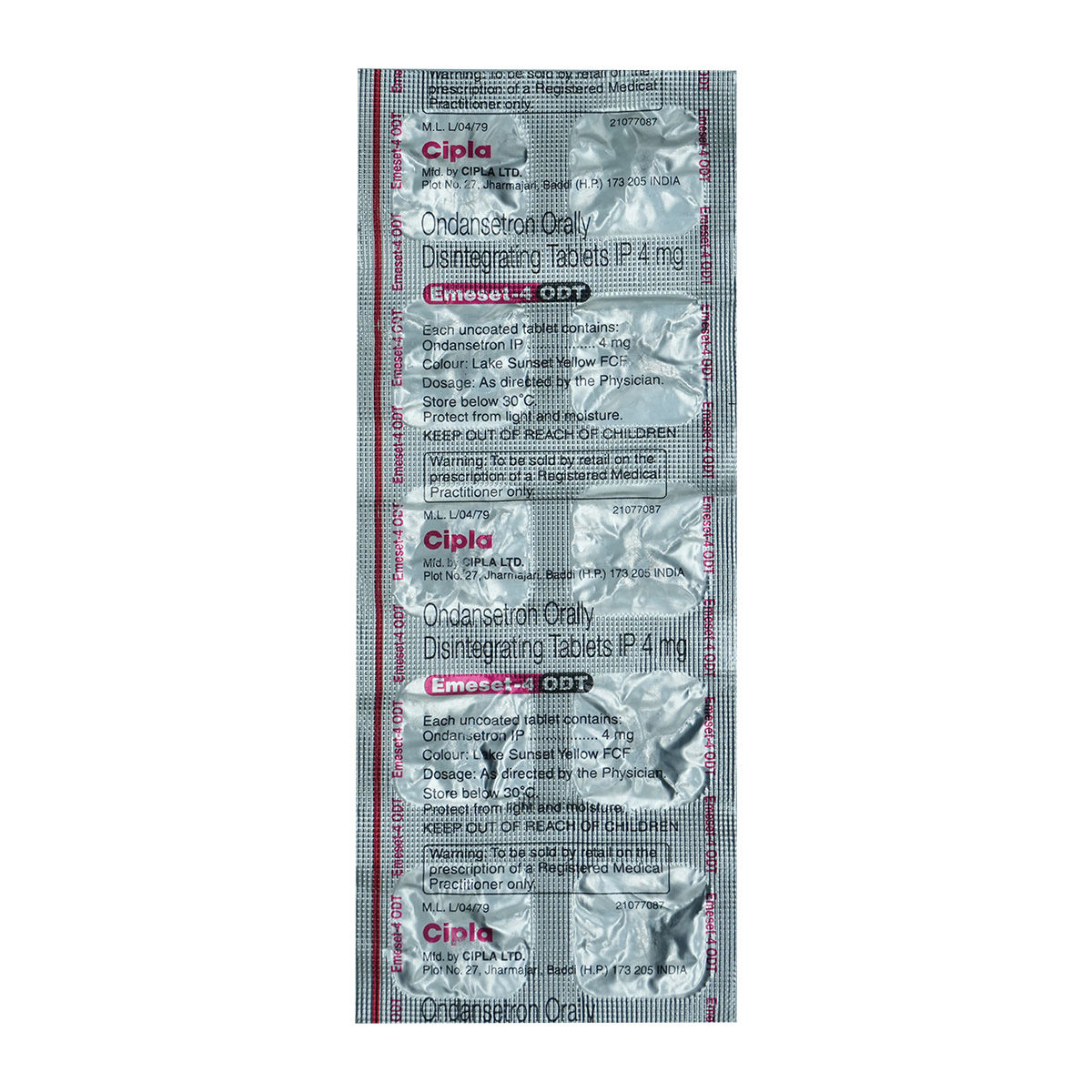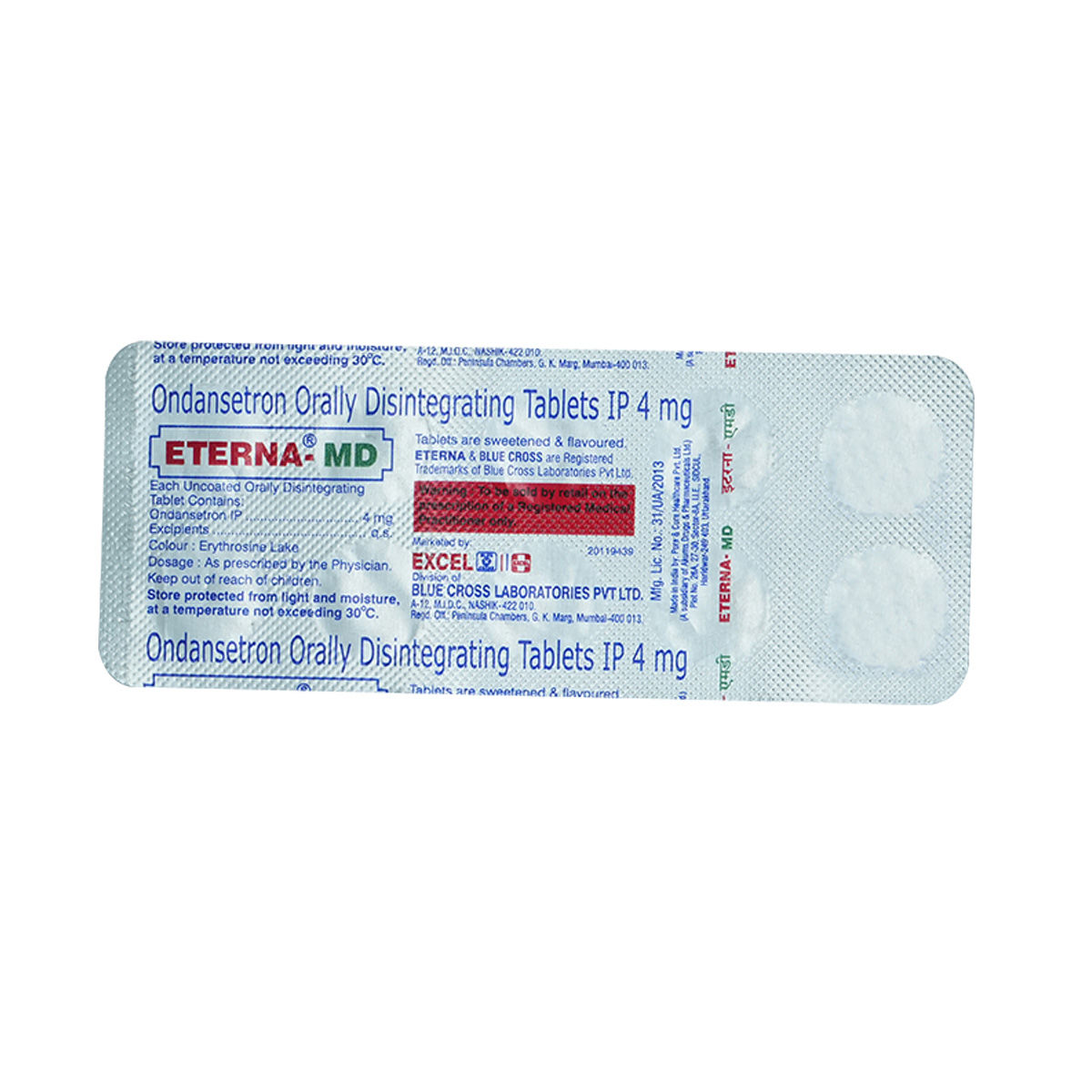Optus 4mg Tablet MD
₹28.8*
MRP ₹32
10% off
₹27.2*
MRP ₹32
15% CB
₹4.8 cashback(15%)
Free Delivery
With Circle membership
(Inclusive of all Taxes)
This offer price is valid on orders above ₹800. Apply coupon PHARMA10/PHARMA18 (excluding restricted items)
Know Your Delivery Time
Provide Delivery Location

Whats That

Secure Payment

India's Most Trusted Pharmacy

Genuine Products
Composition :
Manufacturer/Marketer :
Consume Type :
Return Policy :
About Optus 4mg Tablet MD
Optus 4mg Tablet MD belongs to a group of medications called ' anti-emetics' primarily used in the prevention of vomiting (being sick) and nausea (feeling sick) that usually occur after cancer chemotherapy, radiation treatment or surgery. Nausea is an uneasy feeling in which a person feels an urge to vomit while vomiting is the natural response to the body to forcefully discharge the stomach contents.
Optus 4mg Tablet MD contains 'Ondanestron' that works by blocking the action of a chemical in the body (serotonin) responsible for causing nausea and vomiting. As a result, Optus 4mg Tablet MD prevents the sensation of nausea and vomiting caused due to conditions like surgery, cancer chemotherapy, pregnancy or motion sickness.
Take Optus 4mg Tablet MD as prescribed. Your doctor will advise you on how often you take Optus 4mg Tablet MD based on your medical condition. A person taking Optus 4mg Tablet MD often experience side effects that include a feeling of warmth, constipation, headache, diarrhoea, headache, drowsiness, feeling of tiredness. Although, not every person faces the side effects of Optus 4mg Tablet MD, and even some of the unpleasant effects of Optus 4mg Tablet MD do not require medical attention.
The use of Optus 4mg Tablet MD is restricted in persons who are allergic to any of the ingredients present in this medicine. Tell your doctor if you are facing liver, kidney, or heart disorders. Optus 4mg Tablet MD should be used during pregnancy or breastfeeding after consulting a doctor. Optus 4mg Tablet MD contains lactose so tell your doctor if you have an intolerance to some sugars.
Uses of Optus 4mg Tablet MD
Directions for Use
Medicinal Benefits
Optus 4mg Tablet MD belongs to a group of medications called anti-emetics used to prevent nausea and vomiting associated with conditions like cancer chemotherapy, radiotherapy, surgery, pregnancy and motion sickness in adults and children above 4 years of age. When serotonin level increases in the blood, it stimulates the CTZ receptor (chemoreceptor trigger zone) located in the brain responsible for controlling nausea and vomiting. Optus 4mg Tablet MD acts by inhibiting the release of this serotonin, thereby preventing nausea and vomiting.
How Optus 4mg Tablet MD Works
Storage
Side Effects of Optus 4mg Tablet MD
- Sensations of flushing
- Constipation
- Headache
- Confusion
- Dizziness
- Fast heartbeat
- Fever
- Headache
- Shortness of breath
- Weakness
What if I have taken an overdose of Optus 4mg Tablet MD
Drug Warnings
Tell your doctor if you are dealing with an uneven heart, liver problems, or any other problem. Tell your doctor if you are taking medicine for epilepsy, cancer medicines, and abnormal heartbeats. Optus 4mg Tablet MD may affect a person's ability to drive. Therefore, should avoid driving or operating any machine. People with an irregular heartbeat (arrhythmia), and phenylketonuria (too much of protein phenylalanine in the blood) should not take Optus 4mg Tablet MD as it may cause serious conditions. The liver patient should not take more than 8 mg of Optus 4mg Tablet MD daily. Optus 4mg Tablet MD should be used during pregnancy or breastfeeding after consultation with a doctor. Taking Optus 4mg Tablet MD with apomorphine can cause a sharp dip in blood pressure, even leading to death, so avoid its intake together.
Drug-Drug Interactions
Drug-Food Interactions
Diet & Lifestyle Advise
A person should take a healthy diet that includes lots of fruits and vegetables, lean meats, skinless poultry, nuts, fish, whole grains, plant-based oils, and low-fat dairy products will help to keep a person in good health and avoid chances of nausea and vomiting.
One should avoid taking greasy or oily foods as this food triggers nausea and vomit.
Eat cool foods instead of hot and spicy foods.
Include clear broths, non-fat yoghurt, fruit juice, sherbet, and sports drinks for fluid make up which has got lost due to vomiting.
Habit Forming
Therapeutic Class
Optus 4mg Tablet MD Substitute

Nuavomin 4 mg Tablet
₹5.18per tabletOndem-MD 4 Tablet 10's
₹5.18per tabletEmeset-4 Tablet 10's
₹5.18per tabletZofer MD 4 Tablet 10's
₹5.13per tabletOndem 4 Tablet 10's
₹5.18per tablet
Product Substitutes
Alcohol
Unsafe
One should avoid consuming alcohol while taking Optus 4mg Tablet MD as this medicine can interact with alcohol and may worsen the side effects.
Pregnancy
Safe if prescribed
Optus 4mg Tablet MD could be used during pregnancy after consulting a doctor.
Breast Feeding
Safe if prescribed
Optus 4mg Tablet MD could be used during breastfeeding after consulting a doctor.
Driving
Caution
Optus 4mg Tablet MD may cause lightheadedness in the body, so a person taking Optus 4mg Tablet MD should avoid driving or operating any heavy machinery or tasks that require mental alertness.
Liver
Safe if prescribed
In persons dealing with liver problems, the use of Optus 4mg Tablet MD is allowed if prescribed by the doctor. However, in patients with severe liver problems should take a low dose of Optus 4mg Tablet MD as much as possible. Do not take more than 8 mg of Optus 4mg Tablet MD per day in case of liver disease.
Kidney
Safe if prescribed
The use of Optus 4mg Tablet MD is safe in patients dealing with kidney disorders. No dose adjustment is required.
Children
Safe if prescribed
Optus 4mg Tablet MD should not be given to the children below 4 years of age. The use of Optus 4mg Tablet MD is safe in children above 4 years of age if prescribed by the doctor.
FAQs
Country of origin
Disclaimer
Author Details
We provide you with authentic, trustworthy and relevant information






